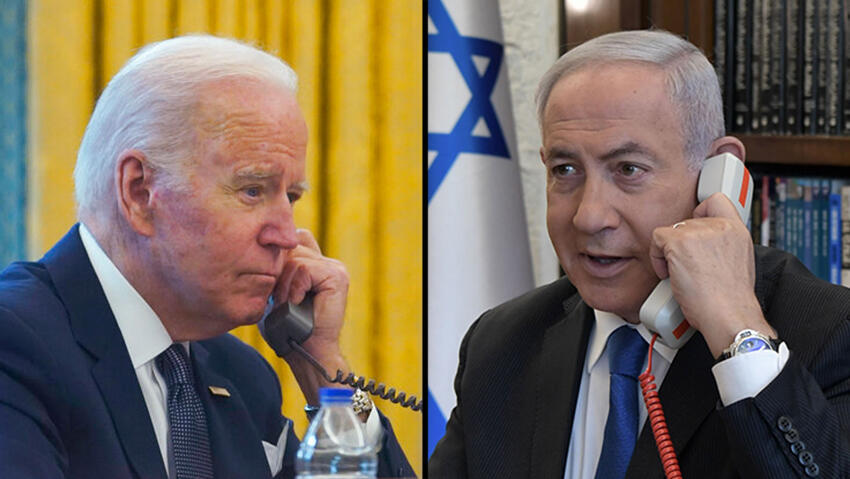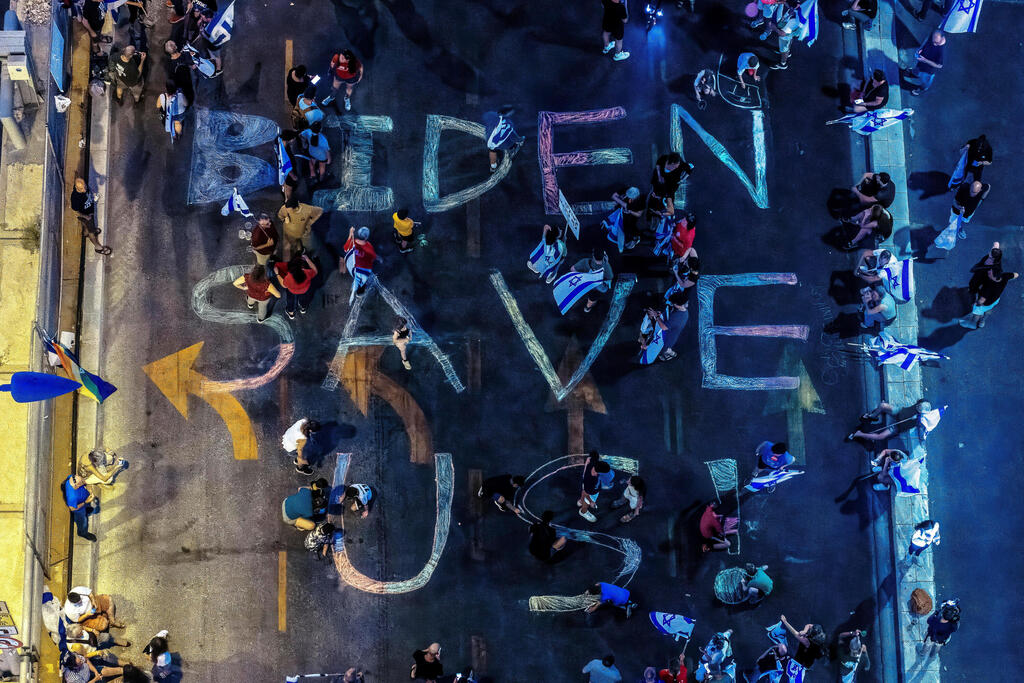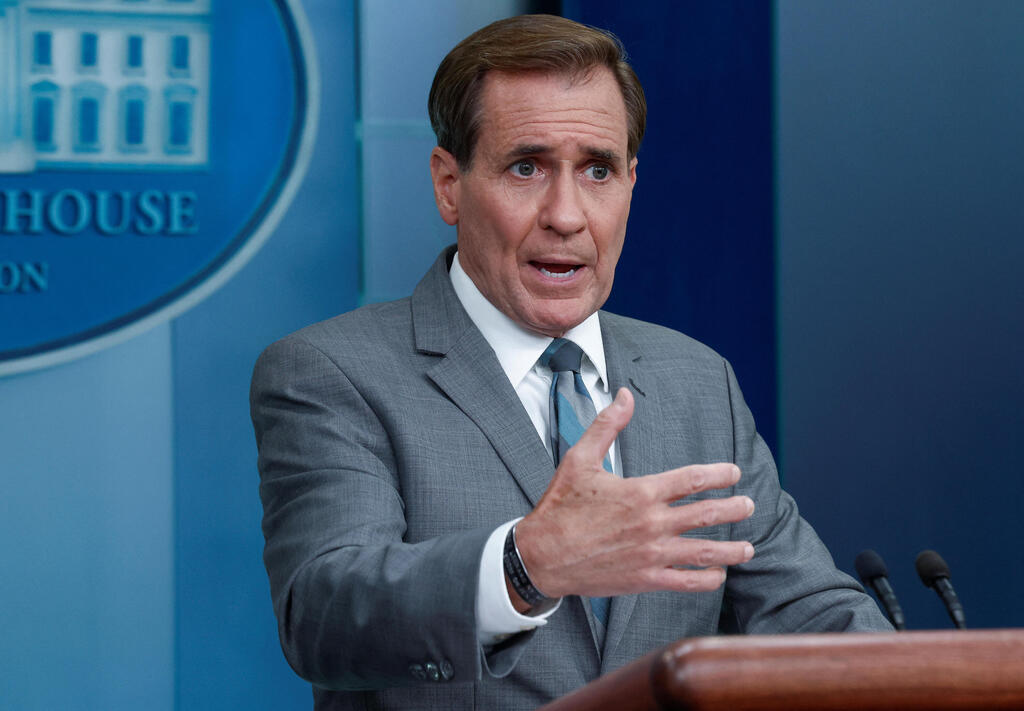National Security Council spokesperson John Kirby addresses judicial reform after Biden-Netanyahu call
(Video: The White House)
U.S. President Joe Biden's decision to extend a long-delayed invitation to Prime Minister Benjamin Netanyahu does not indicate that the 80-year-old leader is any less concerned about the Israeli government's controversial judicial reform push, the White House said on Monday.
Read more:
"That doesn't mean that... we have less concerns over these judicial reforms or less concerns over the extremist activities and behaviors of some members of the Netanyahu Cabinet," National Security Council spokesperson John Kirby told reporters. "Those concerns are still valid. They're disturbing. The president had a chance to reiterate... our concerns about all that in his phone call with the prime minister."
3 View gallery


U.S. President Joe Biden and Prime Minister Benjamin Netanyahu
(Photo: AP Photo/Susan Walsh, Kobi Gideon/GPO)
The two leaders spoke on the phone for the first time in four months on Monday as relations between Jerusalem and Washington seem more strained than ever.
According to a White House readout of the conversation, the two discussed “a broad range of global and regional issues of mutual concern” and Biden “underscored his iron-clad, unwavering commitment to Israel’s security and condemned recent acts of terror against Israeli citizens.”
The two also "consulted on our close coordination to counter Iran, including through regular and ongoing joint military exercises. They noted that U.S.-Israel partnership remains a cornerstone in preventing Iran from ever acquiring a nuclear weapon."
With respect to judicial reform, Biden stressed the "need for the broadest possible consensus, and that shared democratic values have always been and must remain a hallmark of the U.S.-Israel relationship."
The statement also highlighted the Biden administration’s concerns regarding the "continued settlement growth," which, according to him, is led by members of Netanyahu’s government. However, he praised Israel's “willingness to consider new steps to support Palestinian livelihoods, and recognized promising steps by the Palestinian Authority to reassert security control in Jenin and other areas of the West Bank.”
In response to a reporter’s question, Kirby said that there were attempts to schedule the call between Biden and Netanyahu for weeks. "[Biden] just came back from travel, Prime Minister Netanyahu had some issues he had to deal with back home," he added, noting that the meeting between the two will take place in the fall. The two are most likely to meet in September when Netanyahu travels to New York to address the United Nations General Assembly.
The call took place before President Isaac Herzog is set to depart to Washington overnight. Kirby said that the issue will also be discussed in Biden's meeting with Herzog.
“It will certainly be a topic of discussion… It is of concern. The president has made our concerns over it public, clearly, but there’s an awful lot of other issues which I fully expect will come up in the meeting with President Herzog tomorrow. The destabilizing activity of Iran… Potential for additional protest now in Iran now that the morality police is back on the street…,” he said.
3 View gallery


Anti-judicial reform protesters outside U.S. Embassy compound in Tel Aviv
(Photo: REUTERS/Oren Alon)
In response to a question about whether Biden supports the protests, some of which have also taken place in front of the U.S. Embassy compound in Tel Aviv, Kirby replied, that his message is “the same message that he has been sending publicly since this issue of judicial reform came up. We believe strongly in the democratic institutions and the ideals of democracy that the United States and Israel represent… and we want to see Israel be as vibrant and as viable democracy as possible and that means that you build programs and reforms and changes in a way that is based on compromise… the broadest possible consensus."
A statement by Netanyahu’s office described the call with Biden as “long and warm” and “focused on bolstering the strong bond between the nations; thwarting threats from Iran and its proxies; expanding the circle of peace; and the continued efforts to deescalate and stabilize the situation in Judea and Samaria,” using the West Bank’s biblical name.
The statement further read that Netanyahu updated Biden on a bill to crimp judicial oversight of government decisions that is slated to be passed next week by the Knesset and “on his intention to reach wide public support for the rest of the reform during the summer recess.”
It also read that “President Biden invited Prime Minister Netanyahu to meet soon in the United States. The Prime Minister accepted the invitation and it was agreed that Israeli and American teams will coordinate the details of the meeting.”





